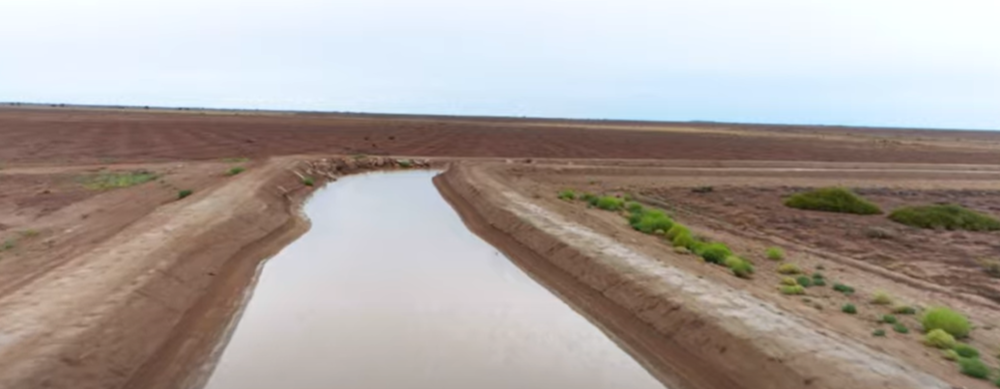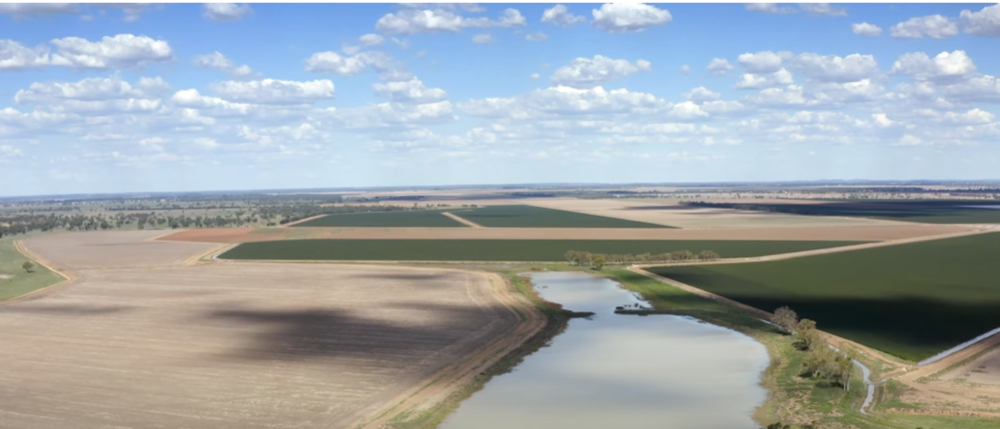Floodplain water theft a real issue
Kristin Murdock
10 January 2023, 2:40 AM
 Constructing levees, banks or other works on floodplains requires an approval from WaterNSW unless an exemption applies. IMAGE: Catherine Fuller
Constructing levees, banks or other works on floodplains requires an approval from WaterNSW unless an exemption applies. IMAGE: Catherine FullerExtensive flooding in NSW during 2022 has led to reports of a network of illegally constructed levee banks on farmland, prompting WaterNSW to warn that constructing levees, banks or other works on floodplains requires an approval from WaterNSW unless an exemption applies.
Ian Cole, spokesperson for the Barwon/ Darling Water Group and Bourke resident said he had heard rumours of illegal levees but not in the local region.
"You hear of people putting up illegal structures but I'm not aware of anything like that happening in our area," Mr Cole said.
Claire Miller, CEO of NSW Irrigator's Council agreed illegal structures in the local area have not been a problem.
"I'm not aware of anything untoward in the Barwon/Darling area and irrigators are generally compliant in the region," she said.
However recent experience has shown that the western plains region is not immune to the practice.
During prior flooding in late 2020 and early 2021, major incidents were uncovered where 200 gigalitres of flood water – the equivalent to nearly half the volume of Sydney Harbour – was harvested by irrigators.
At that time a Moree-based company operating in the Brewarrina local government area was fined a total of $252,000 in the Land and Environment Court.
Constructed in July-August 2015, the unlawful channel was approximately two kilometres long and 30 metres in total width, and was allegedly conveying water pumped from the Macquarie River.
The case was brought by the Natural Resources Access Regulator (NRAR), and the company was convicted of constructing and using a channel to convey water without approval, a breach of the Water Management Act 2000.

All channels, banks and other water diversions need to be properly approved. SOURCE: youtube
NRAR’s Chief Regulatory Officer Grant Barnes said the regulator takes strong action when required and does not make the decision to prosecute lightly.
“In times of scarce supply every drop counts, and we will continue to take strong regulatory action when required to deliver effective, transparent and accountable enforcement of our water laws,” he said.
In his judgement, Justice Moore noted that where a substantial, cotton-growing enterprise has constructed unlawful works as part of its business activities, a strong message must be sent to all water users.
The company appealed that fine in February 2022 but last month it was revealed that the appeal was dismissed by the NSW Court of Criminal Appeal.
Mr Barnes said he was pleased the sentence was upheld.
“This is an important case for NRAR, not just because it is the largest fine we have secured in the court room to date, but because it sends an important message of deterrence to the defendant and the broader community about the importance of following the water management rules,” Mr Barnes said.
Unlawful flood works can divert flood water to unexpected areas, increasing the risk of flooding for adjoining properties and local communities, and creating a flow-on effect for the environment.

IMAGE: youtube
The NRAR say they have received recent reports of allegedly unlawful flood works and may inspect the sites of these works when flooding recedes and it is safe to do so.
Currently 26 separate incidents are under investigation. Seven involve very large volumes which far exceed the amounts that were subsequently licensed.
With the 2022 flooding front of mind for many across the inland river systems, there may be concerns that levees protecting homes and other assets may attract legal action.
However, the Western Plains App has been advised that there are a number of flood works that do not require approval, including those under direction from the State Emergency and Rescue Management Act.
If you own or occupy a landholding with a total area no greater than 0.2 hectares you do not need to obtain a flood work approval to construct or use a flood work on that land.
The WaterNSW website outlines all regulations relating to flood works. It is also possible to view current flood work approvals, and check if properties near you have approvals, through the NSW Water Register.
Reporting alleged unlawful or unapproved levees can be done online or via the NRAR hotline 1800 633 362.




